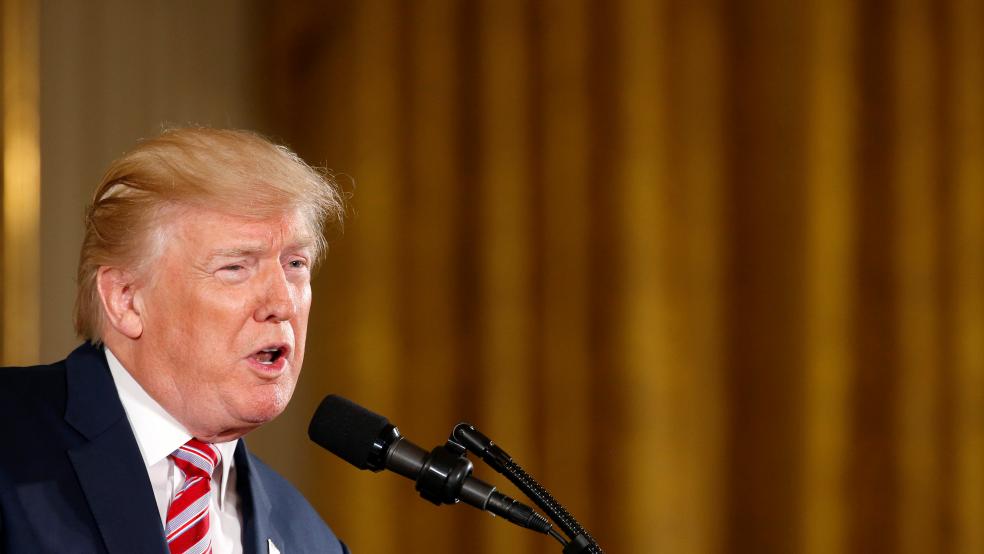President Trump's statement from Trump Tower on Tuesday afternoon was supposed to be about what the White House called “the Infrastructure Discussion” — but that’s not what’s being discussed after his impromptu press conference.
A brief announcement about plans to streamline the permitting process for infrastructure projects was quickly superseded by Trump’s highly controversial criticism of what he called “the alt-left” and his renewed claim that there is “blame on both sides” for the tragic violence in Charlottesville, Virginia, over the weekend.
You can read more about the reaction to the president’s comments about Charlottesville here, here or just about anywhere on the internet right now, but since we’re focused on fiscal policy, let’s review the key points from the president’s comments about infrastructure:
* Trump said he signed a new executive order “to dramatically reform the nation’s badly broken infrastructure permitting process.”
* As he’s done before, Trump held up a flowchart showing the complicated existing infrastructure permitting process for highways, which he described as “a massive self-inflicted wound” that costs our economy billions of dollars. Then he showed a shorter flowchart for the process he said he’s approving, claiming it would reduce the time involved in highway permitting from as much as 17 years to two years.
* Trump claimed that “We used to have the greatest infrastructure anywhere in the world, and today we’re like a third world country. We are literally like a third world country.”
The takeaway: The infrastructure portion of the president’s statement was very similar to previous speeches on the subject. But aside from signing the executive order on faster permitting, Trump has yet to deliver on his proposal to spend $1 trillion on fixing the country’s infrastructure. In fact, U.S. infrastructure spending is falling — and the construction industry is wondering where the promised money is.
Beyond that, the Trump administration’s reversal of Obama-era requirement that builders of public infrastructure projects factor in scientific projections for rising sea levels has been described by critics as a short-sighted mistake that will cost taxpayers billions over time. "We can either build smarter now, or put taxpayers on the hook to pay exponentially more when it floods. And it will," Rafael Lemaitre, former director of public affairs at FEMA who worked on the Obama-era order, told Reuters.
Read more: What Happened to Trump’s Infrastructure Boom? Spending Is Actually Falling



